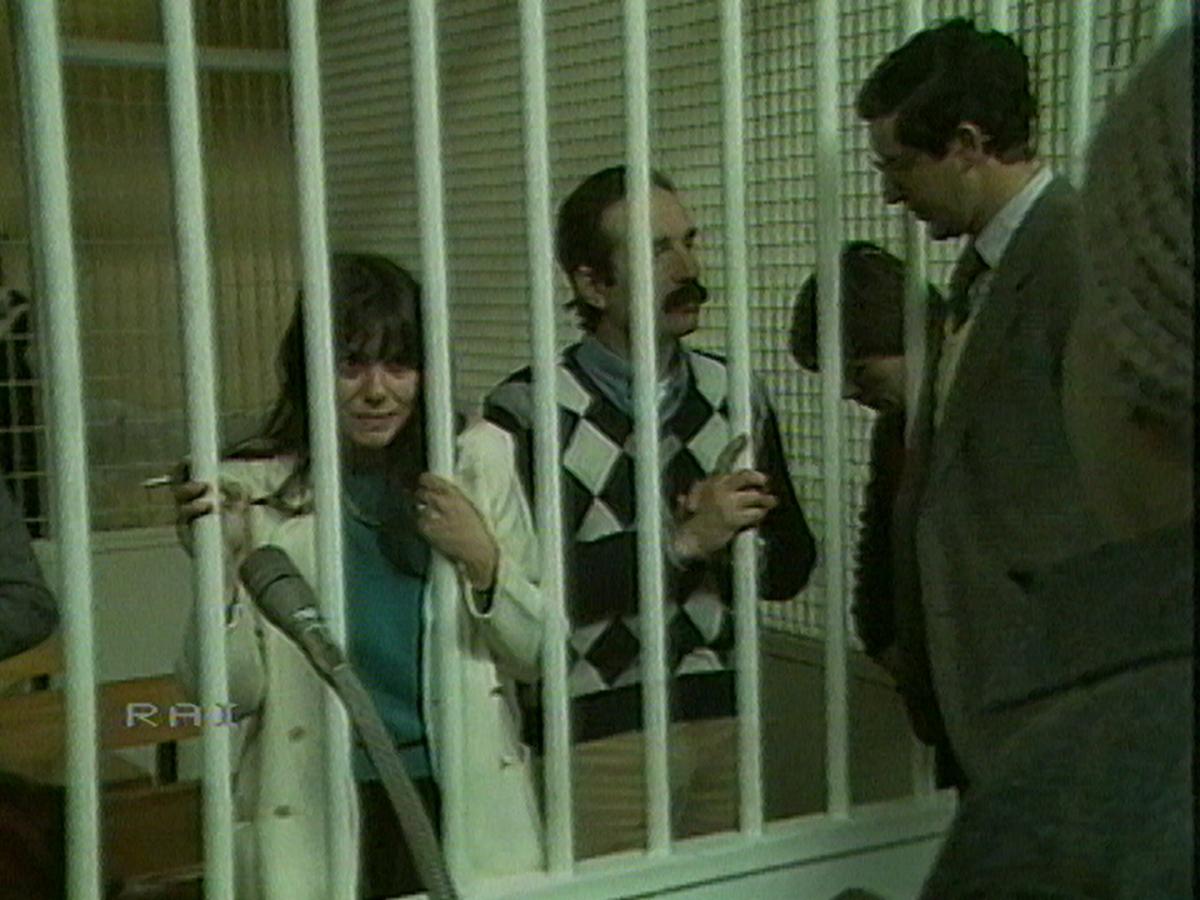Do You Remember Revolution
Loredana Bianconi Introduces Her Film
In Italy, in the mid-seventies, Adriana, Barbara, Nadia and Susanna were 20 years old when they decided to join the armed struggle and leave behind their social life and their families in order to make the revolution the center and the aim of their existence. They decide to join the Red Brigades, often seen as the largest communist terrorist organization in post-war Italy, becoming central figures in the movement. After having returned after many years in prison, filmmaker Loredana Bianconi films these four women as they try, each one of them, to recount their own experiences. In Do You Remember Revolution (1997) they speak about the political reasons which initially sustained them, the conflicts, the doubts, and the moments of being torn apart which market out their lives as women caught up in the vortex of war. A course of events which ended in the condemnation of the armed struggle and the pain of the lives that were destroyed – their victims’ lives and their own. As of today, Do You Remember Revolution is worldwide available on Avila for online screening. In the text below, Loredana Bianconi introduces her film.

“Sweet revolution, I would like my tears to become so many bullets”
– on a school wall in Milan, 1972
I belong to the generation of young people who, in 1970s Italy, shared the anxiety of changing the world and tried to reach solidarity in the struggle against a group of repressive institutions: police, governmental, judicial, school and family institutions. The disenchantment and repressive violence brought out a more radical group in this protest movement, which chose the path of armed struggle. A few thousand people chose this path and became the protagonists of a decade known as the Years of Lead. Among these people who opted for arms and resistance, there were women. Some became “column chiefs” of the Red Brigades, the most important Italian armed grouping. I, along with others, followed the first actions of these women fighters apprehensively. We knew they were politically motivated and determined, which gave them a certain dignity. But we couldn’t understand their choice. They seemed to us to betray a political movement that had been born out of the putting in crisis of traditional forms of politics: the myth of organisation, rigid doctrines, authoritarian watchwords, acts of faith, the practice of violence.
Yet, at the beginning, ambiguities, hesitations, even sympathy characterised our attitude as “left-wing spectators” of this armed struggle phenomenon.
The armed groups were unknown and secret organisations, which quickly created a sort of myth that was both dangerous and attractive. Hold-ups, kidnappings, “demonstrative” attacks, arson... all these actions made a total and spectacular break with the roles socially imposed on women. It showed a complete and visible symbiosis between the subject and her will to revolt, to liberate herself.
But the armed struggle assumed astounding proportions. Our ambiguous feelings were followed by rejection of the ideology that had supported their actions.
In Italy a widespread climate of fear and suspicion dominated. Each “terrorist” episode ended in stronger repression and a decline in democratic safeguards. “Opposing” movements were marginalised, criminalised. By the end of the 1970s, thousands of people were in prison or under surveillance, accused of complicity or sympathy with the “terrorists”.
The many trials that took place in the 1980s inspired me to question and understand the political and personal journey of these women. I had the opportunity to hear some of them speak at meetings and seminars. Each time, these testimonies and reflections impressed me, just as I was impressed by the determination and courage concerning their responsibility after all those years spent in prison.
From these encounters the need arose to make these ex-combatants heard. Making a film based on their testimonies will be a way of meeting them through their stories, their history, their reflections, a way of looking back at a page in the history of Italian society and elucidating the fundamental dynamics of the political subversion that breathed life into the “red terrorism” of the 1970s and ’80s.
These testimonies will be women’s testimonies because in the growing number of analyses of the political violence of that period, there are no filmed documents that consider women. It is as if there were no interest in the difference in behaviour, expectations and imagination they expressed, no curiosity about the elements of violence, transgression and politicisation they brought in. In fact, their presence and memory have been distorted, exorcised, forgotten – war, adventure, exile, weapons, strategies would always only be a man’s business.
I do want to stress that it is not a question of separating the “feminism” from the “non-feminism” of this armed struggle. That would be senseless and impossible, and the female activists would certainly refuse to be categorised in this way. The aim will be to identify a specific experience that could allow for a new interpretation of “terrorism in the feminine”.
These testimonies will range from youth to the years of imprisonment, from political passion to the life of a combatant; they will address their intimate conflicts, the contradictions of their actions, the rifts that made up their existence as women in the whirlwind of war. A journey that leads to the condemnation of armed struggle and the pain caused by the destruction of lives – the lives of victims and their own.
They will maybe make us understand why, how and at what cost the tears of a woman became so many bullets.

